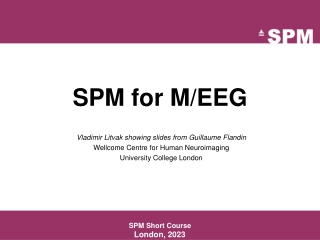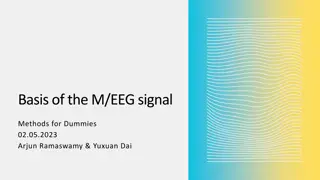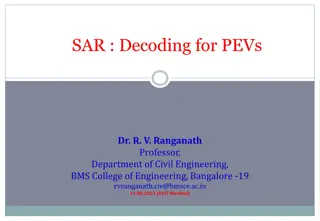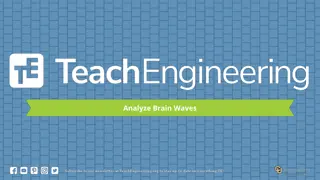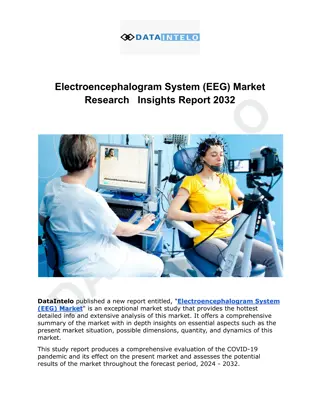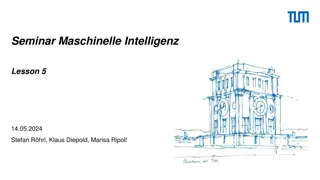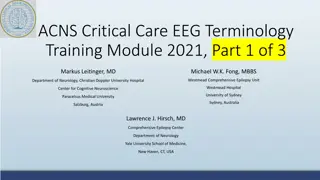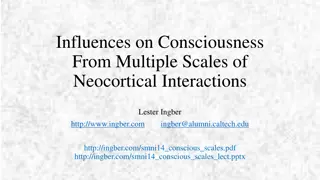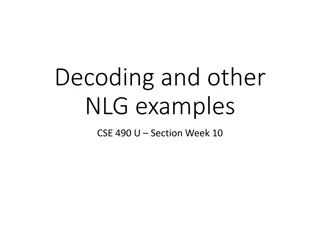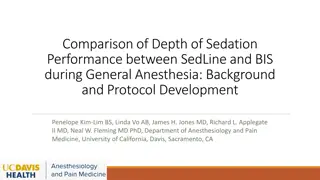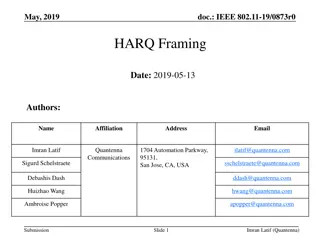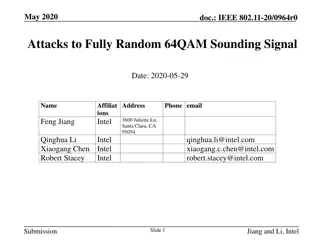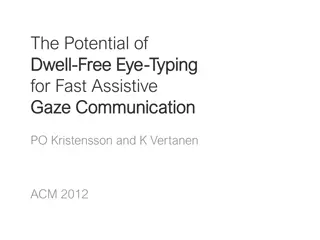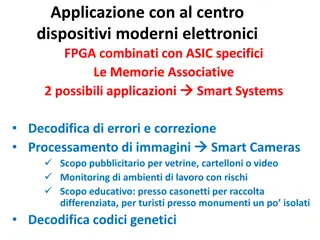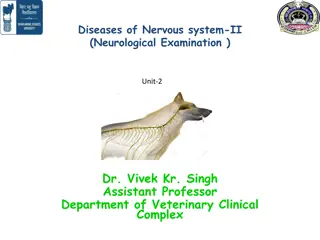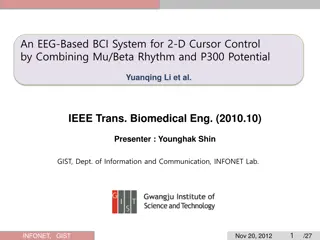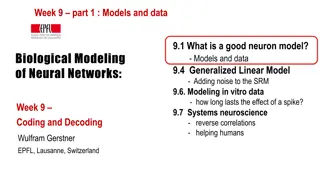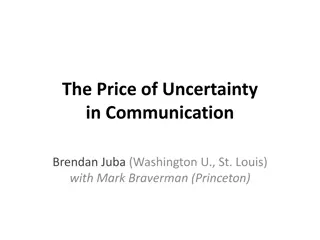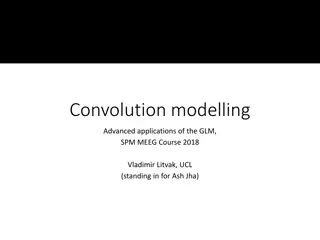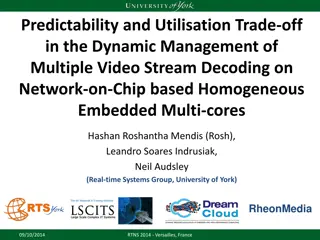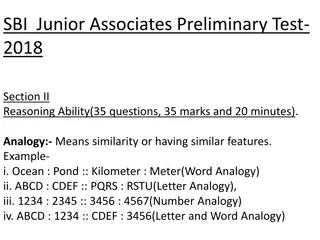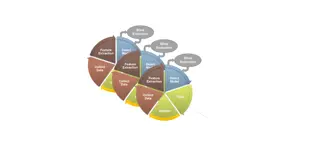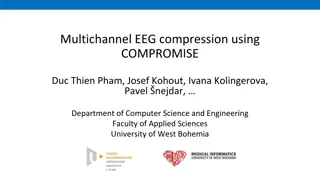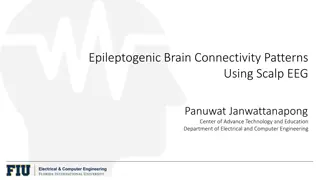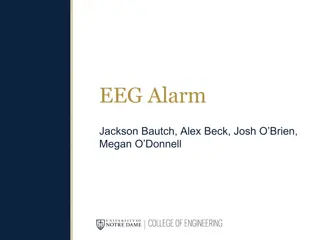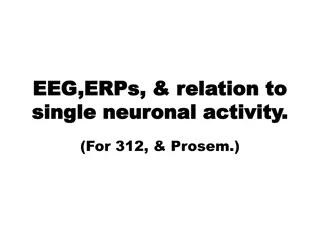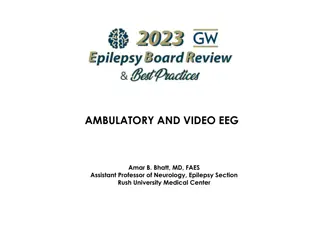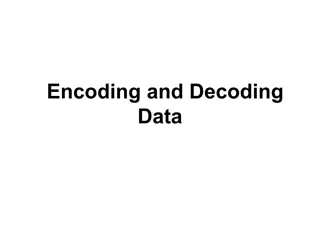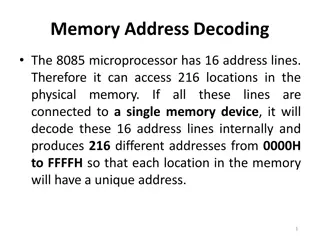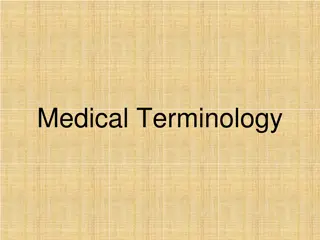SPM for M/EEG
The powerful SPM software for routine statistical analysis of functional neuroimaging data from M/EEG. Learn about its origins, advancements, and applications in a comprehensive short course.
0 views • 17 slides
Cognitive Load Classification with 2D-CNN Model in Mental Arithmetic Task
Cognitive load is crucial in assessing mental effort in tasks. This paper discusses using EEG signals and a 2D-CNN model to classify cognitive load during mental arithmetic tasks, aiming to optimize performance. EEG signals help evaluate mental workload, although they can be sensitive to noise. The
0 views • 19 slides
SAR : Decoding for PEVs
This document provides detailed information on SAR decoding for Program Educational Videos (PEVs) at BMS College of Engineering in Bangalore. It covers key criteria such as institutional information, program-level details, faculty contributions, student performance, facilities, and continuous improv
0 views • 168 slides
SAR Decoding for PEVs by Dr. R. V. Ranganath at BMS College of Engineering, Bangalore
SAR Decoding for PEVs involves providing preparedness status for the NBA visit, presenting program status to the evaluation team, and documenting evidences to support the program assessment process. The SAR includes institutional and program level criteria, faculty information, facilities, continuou
0 views • 168 slides
Basis of the M/EEG signal
This informative guide delves into the basics of M/EEG signal methods, covering topics such as the biophysical origin of M/EEG, historical background, measurement techniques, and the distinction between EEG and MEG. It explores the history of human EEG, the concept of action potentials, and the prac
0 views • 32 slides
Decoding SAR for PEVs by Dr. R. V. Ranganath - BMS College of Engineering
Decoding SAR (Self-Assessment Report) for PEVs (Program Evaluation Visits) provides a comprehensive overview of preparedness status, program criteria evaluation, and institutional information by Dr. R. V. Ranganath, a Professor at BMS College of Engineering in Bangalore. The report covers aspects su
7 views • 166 slides
Exercise Evaluation Training
Controllers and Evaluators play crucial roles in exercise evaluation. Controllers ensure the exercise meets objectives while maintaining safety and focus. Evaluators organize evaluation, observe, and collect data to identify strengths and areas for improvement. Exercise Evaluation Guide (EEG) provid
1 views • 14 slides
Exploring Brain Waves Through EEG Analysis
Delve into the world of brain waves with EEG, EKG, and EMG measurements. Learn how to analyze brain wave data using mathematical processes like Fast Fourier Transform (FFT) and Power Spectral Density (PSD). Discover the significance of different frequencies in brain wave signals and how they reflect
0 views • 13 slides
Electroencephalogram System (EEG) Market Research Insights Report 2032
The global electroencephalogram system (EEG) market size was USD 1.03 Billion in 2023 and is projected to reach USD 1.78 Billion by 2032, expanding at a CAGR of 6.3% during 2024\u20132032.
0 views • 5 slides
Seminar on Machine Intelligence: Brain Decoding and Collaborative Discussions
The seminar on machine intelligence covered topics like brain decoding for visual perception reconstruction and collaborative group discussions. Participants engaged in analyzing research papers, understanding complex concepts, and exploring implications and limitations of the work. Activities inclu
0 views • 4 slides
Understanding ACNS Critical Care EEG Terminology 2021: Part 1 of 3
This module provides an introduction to the important components of the ACNS standardized critical care EEG terminology for 2021. It discusses common terms and components of EEG background, sporadic epileptiform discharges, rhythmic and periodic patterns (RPPs), electrographic and electroclinical se
1 views • 41 slides
Exploring Influences on Consciousness Through Neocortical Interactions
Delve into the intriguing realm of consciousness with Lester Ingber's research on the influences stemming from multiple scales of neocortical interactions. The investigations cover various aspects such as mind over matter, recursive interactions, neuronal scales in the neocortex, and statistical mec
1 views • 41 slides
Decoding and NLG Examples in CSE 490U Section Week 10
This content delves into the concept of decoding in natural language generation (NLG) using RNN Encoder-Decoder models. It discusses decoding approaches such as greedy decoding, sampling from probability distributions, and beam search in RNNs. It also explores applications of decoding and machine tr
0 views • 28 slides
Comparison of SedLine and BIS Depth of Sedation Performance in General Anesthesia
This study evaluates the performance of SedLine and BIS monitoring devices in measuring anesthetic depth during general anesthesia. The research protocol aims to compare processed EEG indices from both monitors across various levels of anesthetic depth using a custom interface box. Inclusion criteri
0 views • 10 slides
EEG Conformer: Convolutional Transformer for EEG Decoding and Visualization
This study introduces the EEG Conformer, a Convolutional Transformer model designed for EEG decoding and visualization. The research presents a cutting-edge approach in neural systems and rehabilitation engineering, offering advancements in EEG analysis techniques. By combining convolutional neural
1 views • 6 slides
Enhancing HARQ Framing for IEEE 802.11 Standards
Hybrid-ARQ (HARQ) is a candidate topic for TGbe presentations in IEEE 802.11 standards. Despite previous unsuccessful attempts, there is renewed interest in enabling HARQ through framing support. This document discusses the importance of presenting HARQ framing, outlining the necessary information a
1 views • 7 slides
Attacks on Fully Random 64QAM Sounding Signal in IEEE 802.11-20/0964r0
Presentation by Intel demonstrates vulnerabilities in fully random QPSK and 64QAM sounding signals in IEEE 802.11-20/0964r0. Proposed attack methods, including Viterbi equalizer attacks, and solutions such as Secure LTF mechanism and windowed FFT are discussed to enhance security in ranging. The pre
0 views • 31 slides
Fast Assistive Gaze Communication - Dwell-Free Methods
Explore the cutting-edge technology of fast assistive gaze communication through dwell-free methods, revolutionizing hands-free typing for enhanced accessibility and communication. Discover innovative approaches like Dasher and EEG-based systems, promising faster typing speeds and improved user expe
0 views • 15 slides
Innovative Applications of Associative Memory in Modern Electronic Devices
Explore the diverse applications of combining FPGA with specific ASICs and associative memories in smart systems, error decoding, image processing, advertising displays, and workplace monitoring. Learn about Content Addressable Memory (CAM) utilization, pattern matching techniques, and real-life exa
0 views • 18 slides
Comprehensive Guide to Neurological Examination in Dogs and Cats
Neurological examination in dogs and cats is crucial for diagnosing nervous system disorders. This guide covers the recording of history, general and detailed clinical examinations, examination of CSF, radiographic examination, EEG, and brain biopsy. It includes assessing history, mental state, move
0 views • 20 slides
Decoding English Words: From Syllables to Morphemes
Explore the evolution of English language complexity due to historical invasions, the impact on orthography, and the significance of morphophonemic patterns in decoding, spelling, and understanding English words using Latin and Greek morphemes.
0 views • 22 slides
EEG-Based BCI System for 2-D Cursor Control Combining Mu/Beta Rhythm and P300 Potential
Brain-computer interfaces (BCIs) offer a pathway to translate brain activities into computer control signals. This paper presents a novel approach for 2-D cursor control using EEG signals, combining the Mu/Beta rhythm and P300 potential. By simultaneously detecting two brain signals, P300 and motor
0 views • 27 slides
Biological Modeling of Neuronal Networks: Insights from Neural Dynamics
Exploring neuron models, generalized linear models, and decoding processes in neural networks through intracellular and extracellular recordings, with a focus on processing models, encoding, and decoding of spike trains. The Spike Response Model and likelihood of spike trains are discussed, providin
0 views • 32 slides
Decoding Uncertainty in Communication: Exploring Prior Distributions and Coding Schemes
Delve into the intricate world of communication under uncertainty, where decoding messages accurately is paramount. Discover how prior distributions, encoding schemes, and closeness metrics influence the efficiency and effectiveness of communication between parties sharing different priors.
0 views • 22 slides
Advanced Applications of GLM and SPM in M/EEG Course 2018
This course delves into utilizing Convolution GLM to address challenges such as baseline correction, overlapping neural responses, and systematic response timing differences in EEG experiments. It focuses on the stop-signal task, EEG correlates of movement stopping, and MEG data analysis. The course
0 views • 26 slides
Predictability and Utilisation Trade-off in Video Stream Decoding Management
This study explores the trade-off between predictability and utilisation in managing multiple video stream decoding tasks on Network-on-Chip based embedded multi-cores. The objective is to make predictable admission control decisions while maintaining high system utilisation. Metrics include minimiz
0 views • 29 slides
Reasoning Ability Test - Analogy, Classification, Coding-Decoding Examples
Explore analogy, classification, and coding-decoding examples from the SBI Junior Associates Preliminary Test 2018 section on Reasoning Ability. Test your logical thinking skills with questions and answers related to similarities, grouping objects, and secret message patterns.
0 views • 10 slides
Analysis of Deep Learning Models for EEG Data Processing
This content delves into the application of deep learning models, such as Sequential Modeler, Feature Extraction, and Discriminator, for processing EEG data from the TUH EEG Corpus. The architecture involves various layers like Convolution, Max Pooling, ReLU activation, and Dropout. It explores temp
0 views • 15 slides
Multichannel EEG Compression Using COMPROMISE Study
A study on multichannel EEG compression using COMPROMISE by Duc Thien Pham, Josef Kohout, Ivana Kolingerova, Pavel Nejdar from the Department of Computer Science and Engineering, Faculty of Applied Sciences, University of West Bohemia. The study covers datasets, methods, and discussions related to E
0 views • 12 slides
Strategies to Improve Word Decoding Skills in Struggling Readers at PS104
Students at PS104 are facing challenges in decoding new words, impacting their reading abilities. Common mistakes include guessing words, relying solely on pictures, and forgetting to track under each word. Strategies such as phonics programs and cueing systems are being explored to enhance reading
0 views • 15 slides
Supporting Children's Comprehension Skills in Year 6 Reading
Studies show that 1 in 10 children with adequate decoding skills struggle with comprehension, impacting motivation and academic performance. Parents can help by engaging in daily reading activities, visiting libraries, and asking questions. Year 6 assessments focus on decoding, understanding, infere
0 views • 17 slides
Uncovering Epileptogenic Brain Connectivity Patterns Through Scalp EEG
Epilepsy is a common neurological disorder characterized by unprovoked seizures, affecting a significant portion of the population. Enhancing the diagnosis and prediction of seizures through EEG recordings can improve therapeutic strategies for epilepsy patients. Functional connectivity analysis in
0 views • 21 slides
Innovative Sleep Monitoring Device for Improved Rest
EEG Alarm by Jackson Bautch, Alex Beck, Josh O'Brien, and Megan O'Donnell offers a solution to track sleep stages throughout the night using Electroencephalogram (EEG) technology. With fewer electrodes and a compact design, the device sends sleep data to the user's phone and sets off an alarm during
0 views • 7 slides
Understanding the Relationship between EEG, ERPs, and Single Neuronal Activity
This detailed information discusses the relationship between EEG, ERPs, and single neuronal activity, exploring how electrodes record signals based on tip diameter and biological amplifier filter settings. It delves into parameters that determine what an electrode records, highlighting the importanc
0 views • 56 slides
Understanding Video-EEG Monitoring in Neurology
Detailed information on the uses, options, and activation procedures for Video-EEG monitoring in neurology, focusing on diagnosis, interictal epileptiform discharges, medication adjustment, and surgical candidacy evaluation. Learn about the yield of EEG monitoring, methods to increase yield, and dif
0 views • 43 slides
Understanding Encoding and Decoding Data Principles
Data encoding involves converting information into a different form using specific rules, which is then decoded back to its original state. This process is crucial for secure communication, as seen in examples like Morse Code. Through encoding, messages can be kept confidential and accessed only by
0 views • 7 slides
Memory Address Decoding in 8085 Microprocessor
The 8085 microprocessor with 16 address lines can access 216 locations in physical memory. Utilizing a 74LS138 address decoder, chip select signals are generated for memory block selection. The interfacing involves decoding address lines to enable memory access, with distinctions between RAM and ROM
0 views • 18 slides
Combined Classification and Channel Basis Selection with L1-L2 Regularization for P300 Speller System
This study presents a method that combines classification and channel basis selection using L1-L2 regularization for the P300 Speller System. The approach involves EEG signal processing, feature extraction, P300 detection, and character decoding. The proposed method aims to improve decoding accuracy
0 views • 17 slides
Understanding Medical Terminology: Word Parts and Decoding
Essential knowledge of medical terminology involves understanding prefixes, suffixes, and root words. By dissecting word parts, health professionals can decipher complex terms and accurately interpret medical language. This guide highlights the role of root words, prefixes, suffixes, combining vowel
1 views • 24 slides
Insights into the Rowhammering.BIKE Cryptosystem and Decoding Strategies
Explore the Rowhammering.BIKE cryptosystem, its parameters, and the black-grey flip decoder. Learn about the bitflipping algorithm, prior analysis of DFR in QC-MDPC decoders, and strategies for key recovery and decoding in this innovative system. Discover how understanding the error patterns related
0 views • 7 slides
